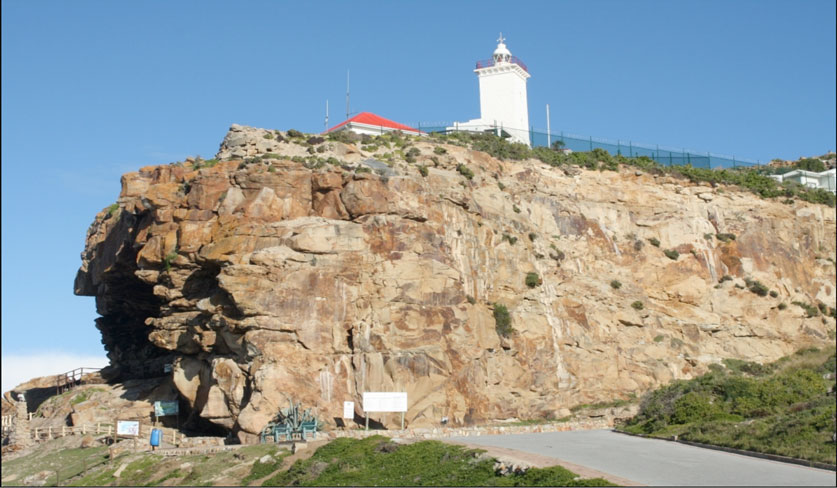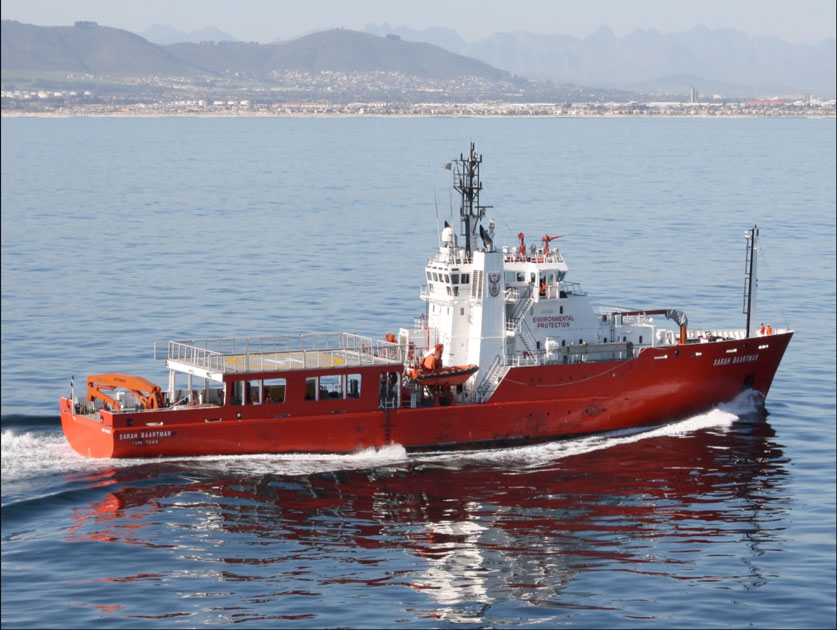[vc_row][vc_column][vc_video link=”https://vimeo.com/473798726″][vc_column_text]A littoral state is a country that has a coastline, i.e. at least one part of the country borders on the sea. South Africa, for example, is a littoral state, but Lesotho and Botswana are not as they do not have a coastline. They are land-locked countries and rely on a neighbouring country (like South Africa) to receive their imports and move them to the land-locked country. Electronic equipment imported by a company in Botswana will arrange the shipment to be landed at Durban and either railed or trucked to Botswana. A meat exporter in Botswana will arrange to move reefer containers loaded with meat by truck or by rail to Cape Town (or Walvis Bay in Namibia) for shipment to Britain.

Cape St Blaize Lighthouse at Mossel Bay. Coastal sates are required to maintain lighthouses and other navigational aids for ships passing through their waters. Photograph : Brian Ingpen
- Territorial Waters – Every littoral state is entitled to have territorial waters that extend 12 nautical miles from the main points along the coast. This area is regarded at part of that country. For example, a point ten nautical miles off Cape Point is as much part of South Africa as the main street of Durban, or Bloemfontein. Within a country’s territorial waters, all the laws of that country apply.
- Economic Exclusion Zone – Every littoral state can extend its economic control over an area extending 200 nautical miles further seaward. It means that a country can control all economic activities within that area. For example, no foreign fishing vessel may fish in that area without a permit; no prospecting for oil may occur in that area without a special permit; no prospecting for other minerals may occur without a special permit. People working on oil rigs or other marine operations in that area are liable for tax payable in the country and the country can charge tax on operations within the economic exclusion zone. With international permission, South Africa has extended its economic exclusion zone to 300 nautical miles along the southern coast. This was done because of the possibility of undersea mining in the area and also as it is the breeding ground of many fish species that are caught by the South African fishing fleet.
- Right of Innocent Passage – Any ship can pass through a country’s territorial waters and its economic exclusion zone, provided she is on an innocent passage. This means that the ship is not regarded as on an innocent passage if she is involved in any illegal activity (e.g. drug smuggling, weapon smuggling, people trafficking, piracy, etc) or on any operation that would endanger that country or on any war operation. A country can order a ship out of its territorial waters if it believes the ship is not on innocent passage – and the country may order its navy or coastguard or police to board the vessel (or even detain her) if it believes that a crime has been committed by the ship (e.g. fish poaching, smuggling, gun-running).
- Control within a Country’s Waters – A country needs to ensure that activities within its territorial waters and economic exclusion zone are legal. Thus it must patrol the area – the easiest and best way of doing this is by aerial and satellite surveillance, backed up by an efficient navy, coastguard or other patrol services. In South Africa, a fleet of four fisheries patrol vessels have the nearly impossible task of patrolling a coastline of 3000 kilometres. The South African Navy is responsible for security of the coastline and also has a patrol in the Mozambique Channel. Aerial surveillance and satellite systems need to be upgraded to make this efficient. A vessel that is causing pollution (e.g. she is leaking oil) or has broken down within a country’s territorial waters can either be ordered out of the waters, or be ordered to receive any assistance the maritime safety authority believes is necessary.

The South African fisheries patrol vessel Sarah Baartman off Cape Town. Photograph : Brian Ingpen
[/vc_column_text][/vc_column][/vc_row]

